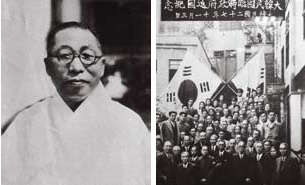Joseon Dynasty in South Korea
The Joseon Dynasty,
Chosŏn, Chosun, Choseon (July 1392 - August 1910), was a sovereign state
founded by Yi Seong-gye which at this time became Korea. The Joseon Dynasty
lasted for more than 5 centuries. The founding of Joseon occurred after the
fall of the Goryeo Dynasty, which was headquartered in Gaeseong and then moved
to Hanyang. The territory of the Joseon Dynasty was extended to the borders of
the Yalu and Duman Rivers in the far north after successfully conquering the
Jurchens. Joseon was the longest-running Confucius dynasty in the world. After
the declaration of the Korean Empire in 1894, the dynasty's reign ended when
the Japanese occupation began in 1910.
The founder of Joseon
is Yi Seong-gye who was appointed King of Taejo. He was a member of the Yi clan
from Jeonju who staged a coup against King Woo of Goryeo. Yi Seong-gye is well
known as an astute military expert in leading the war against Japanese pirates
who disturbed Korean waters. He moved the capital from Gaegyeong (now Gaeseong)
to Hanseong and founded the Gyeongbok palace in 1394.
The patrilineal
succession of King Taejo has never been interrupted until modern times. The
last ruler, Sunjong, or Emperor Yungheui who was forcibly demoted by the
Japanese military as head of state in 1910. The successor to the royal lineage
of the Joseon Dynasty at this time is only a descendant of Yeongchinwang (Crown
Prince of Uimin) and Uichinwang (Prince Uihwa) who is the younger brother
Sunjong
During his regime,
Joseon took full control of Korea, embraced Confucianism and applied it in
society, importing and adopting Chinese culture. It was at this time that Korea
achieved glory in the fields of culture, literature and science. However,
Joseon suffered a serious setback in the late 16th to early 17th centuries due
to the Japanese invasion and the invasion of the Qing Dynasty.
That caused
Joseon to start a policy of isolation from the outside world so it was known as
the Hermit Kingdom. Joseon slowly opened up in the 18th century, but faced
internal strife, foreign pressure, and internal rebellion so that towards the
end of the 19th century, Joseon began to lose his skills.
In 1895, Joseon
was forced to sign independence documents from the Qing Dynasty after Japan's
victory in the First Sino-Japanese War and the Shimonoseki Peace Treaty. In
1897-1910, Joseon was generally known as the Korean Empire to signify that
Joseon was no longer under the authority of the Qing Dynasty. The Japanese
Empire ended the Joseon Dynasty in 1910 when King Gojong was forced to sign the
Japan-Korea Annexation Agreement.
The Joseon Dynasty has
left a very influential legacy on the face of modern Korea; cultural etiquette
and norms, social behavior, and also modern Korean language and the dialect is
rooted in the traditional thought patterns of this period.











Komentar
Posting Komentar